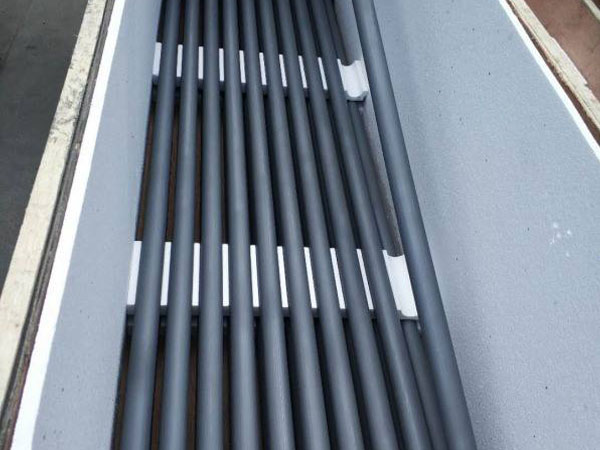Silicon carbide, also known as SiC, is a versatile material that has found numerous applications in various industries. One of its popular uses is in the manufacturing of silicon carbide rollers. These rollers are widely used in roller kilns for firing ceramics, such as tiles, sanitary ware, and tableware. In this article, we will explore the advantages and features of silicon carbide rollers and understand why they are preferred in the ceramic industry.

Advantage of silicon carbide roller:
1. High-temperature resistance: Silicon carbide rollers can withstand extremely high temperatures, making them suitable for use in roller kilns where firing temperatures can reach up to 1400°C. This high-temperature resistance ensures the longevity and durability of the rollers, even under intense heat conditions.
2. Excellent thermal conductivity: Silicon carbide has excellent thermal conductivity properties, allowing for efficient heat transfer throughout the roller. This property helps in maintaining uniform temperature distribution inside the kiln, resulting in consistent and high-quality firing of ceramic products.
3. Wear and corrosion resistance: Silicon carbide rollers have exceptional wear and corrosion resistance properties. They can withstand the abrasive nature of ceramic materials and resist chemical reactions with various substances used in the firing process. This resistance ensures minimal wear and tear, leading to longer roller lifespan and reduced maintenance costs.
4. Dimensional stability: Silicon carbide rollers exhibit excellent dimensional stability even under extreme thermal conditions. This stability ensures that the rollers maintain their shape and size, allowing for precise and consistent ceramic product firing.
Feature of silicon carbide roller:
1. Lightweight and high strength: Silicon carbide rollers are lightweight compared to traditional rollers made from other materials, such as alumina. Despite their lightness, they possess high strength and rigidity, making them suitable for heavy-duty applications in roller kilns.
2. Low thermal expansion: Silicon carbide has a low coefficient of thermal expansion, which means it experiences minimal expansion or contraction when exposed to temperature changes. This feature helps in maintaining the structural integrity of the roller, reducing the risk of cracks or deformations during the firing process.
3. Smooth surface finish: Silicon carbide rollers have a smooth surface finish, which minimizes the friction between the roller and the ceramic products. This smoothness prevents surface defects or marks on the fired ceramics, ensuring a high-quality finished product.
In conclusion, silicon carbide rollers are essential components in roller kilns for the firing of ceramics. Their high-temperature resistance, excellent thermal conductivity, wear and corrosion resistance, dimensional stability, lightweight, high strength, low thermal expansion, and smooth surface finish make them the preferred choice in the ceramic industry. The use of silicon carbide rollers ensures efficient and consistent firing, resulting in high-quality ceramic products.












